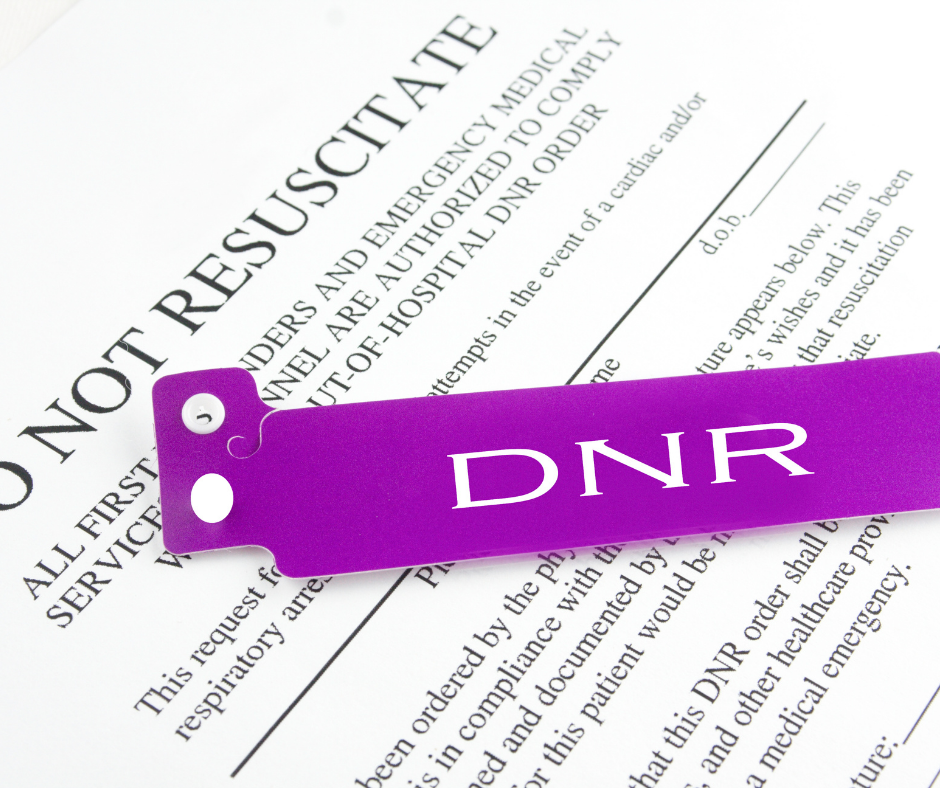16th Mar 2021

Estimated reading time: 5 minutes
Clients often call me and say that a hospital has asked them for “some document,” but they don’t know what it is, nor do they know if they have one. (It turns out the hospital asked for an “advance directive,” and if the clients have done proper estate planning, they do have one.)
As I meet with clients to discuss preparation of an estate plan, including an advance directive, a surprising number of them tell me they want a “Do Not Resuscitate” or “DNR” order. I ask them if during the course of our meeting they experience cardiac arrest, do they really intend that there should be no attempt to restart their heart? Or would they prefer I call EMS? (It turns out they would want EMS called. They just didn’t know what a DNR order is.)
The following discussion describes an “advance directive,” the different types, and when it is advisable to have which kind of advance directive.
“Advance directive” is a term that encompasses a variety of documents that allow you to provide direction about how you want to be cared for, including a DNR order, living will, durable power of attorney for health care or a patient advocate designation. Below is a description of these various types of advance directives, and the circumstances under which they may be appropriate.
A Do Not Resuscitate or DNR order is a document that lets persons outside of a hospital or nursing home setting, i.e., EMS workers, know that you do not want to receive CPR if your heart and breathing stop. Generally you would not want a DNR order unless you are terminally ill, or if your quality of life is so diminished that it is not worth enduring the broken ribs and punctured lungs that may result from CPR. Patients in hospice care often have a DNR order.

A DNR order states that you have discussed your health status with your physician, and requests that if your heart and breathing stop, no attempt should be made to resuscitate you. The order is to be signed by you, your physician, and two witnesses. If you are a member of a church that depends on healing through prayer and not conventional medical treatment, you may sign a form that does not require a physician’s signature.
The DNR order should be prominently displayed so that EMS personnel will see it before beginning CPR. You may wear a bracelet alerting them to the fact that you have a DNR order in place.
A “Living Will” is a written statement of your wishes regarding health care and treatment, including the use of life sustaining treatment such as ventilators, tube feeding, and CPR. Living wills are not statutorily recognized in Michigan, but they may be considered as evidence of your wishes in a situation where you do not have another statutorily recognized advance directive and have not named someone to make care decisions if you are incapable of making and communicating those decisions yourself.
Michigan law does recognize a “Patient Advocate Designation,” also known as a “Durable Power of Attorney for Health Care.” This is generally what a hospital is looking for when asking if you have an advance directive. As the name of the document indicates, you have identified in that document a person to act as your patient advocate to make health care decisions for you. You may also include direction regarding how you want the patient advocate to make those decisions. The authority of your patient advocate takes effect only if you have been determined to be unable to make or communicate your own decisions. This determination is made by two physicians or a physician and psychologist who have examined you.
Michigan law allows a patient advocate to sign a DNR order on behalf of the patient and to withhold or withdraw life-sustaining treatment if in the document the patient clearly and convincingly authorized such a decision and acknowledged that the decision could result in the patient’s death.
Although hospitals routinely ask if a patient has an advance directive, there is little that can be done at the time of hospitalization if the patient does not already have such a document. Michigan law requires that a patient advocate designation must be signed in the presence of two adult witnesses, and restricts who may be a witness. Witnesses cannot be related to the patient or be the person named as a patient advocate. Witnesses may not be the patient’s physician or an employee of a health care facility that is caring for the patient. Hospitals, rehab centers, and nursing homes all have strict policies prohibiting their employees from acting as witnesses on these and other documents. Thus, if you don’t already have an advance directive at the time you go into the hospital, it will be difficult to get one once you are there. When, as now, hospitals are restricting how many visitors a patient may have at any given time, it can be impossible to properly execute a patient advocate designation in the hospital.
In almost all cases, my clients want to make sure they will not be kept alive by means of a ventilator or tube-feedings if they become terminally ill or if they are in an irreversible coma, but they also want EMS to do CPR to restart their heart if they experience cardiac arrest. A properly executed patient advocate designation can provide that peace of mind. With a bit of advance planning, they answer “Yes” when the hospital asks, “Do you have an advance directive?”
Written by Katherine Albrecht
Related Links


